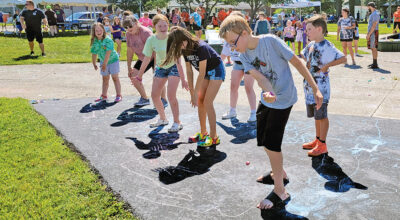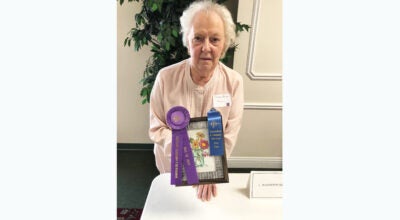Zoo Lessons
Published 10:44 am Wednesday, January 14, 2009
CHESAPEAKE — It may have looked simply like some weekend trips to the zoo, but for two Chesapeake educators it was another way for them to hone their teaching tools.
And the beneficiaries will be their students.
The result was not just a better way to approach their classrooms, but also the honor of having their work showcased at the Earth Expeditions World Community Conference at the Cincinnati Zoo this past Saturday.
Participating in the conference were Nannette Walsh of Proctorville and kindergarten teacher at Chesapeake Elementary, and Nora Frye of Chesapeake, and the second grade teacher at Chesapeake.
The focus of their work was the primate community at the zoo where the two instructors studied the animals and conservation efforts concerning them.
“It was on how to do scientific inquiry and they wanted to explain the conservation efforts,” Frye said. “We were surprised on how many primates are becoming extinct.”
But their studies, sponsored by Miami University’s Project Dragonfly and the Cincinnati Zoo, also enabled the teachers to incorporate the methods they learned at the conference into their classroom work.
“It was how to ask a more in-depth question to your kids, to lead them but let them do research on their own,” Walsh said.
Through lectures and on site observation, Walsh and Frye studied prosimians, monkeys and apes.
“You learned a lot about how they treat their young, their mannerisms,” Walsh said. “It went really in-depth on the inquiry-based research.”
The goal of the project was to parallel the same techniques a research scientist would use. From their weekend work, they created a visual presentation that was chosen to be exhibited at the Earth Expeditions World Community Conference at the zoo. That presentation back up their research that photographs encouraged participation by second graders as far as conservation efforts were concerned.
To come up with the presentation, the two women got in-put from their students, who were eager to help but apparently seemed unmindful of the technical aspect of their teachers’ work.
“As far as they knew we were learning how to save the monkeys,” Frye said.





